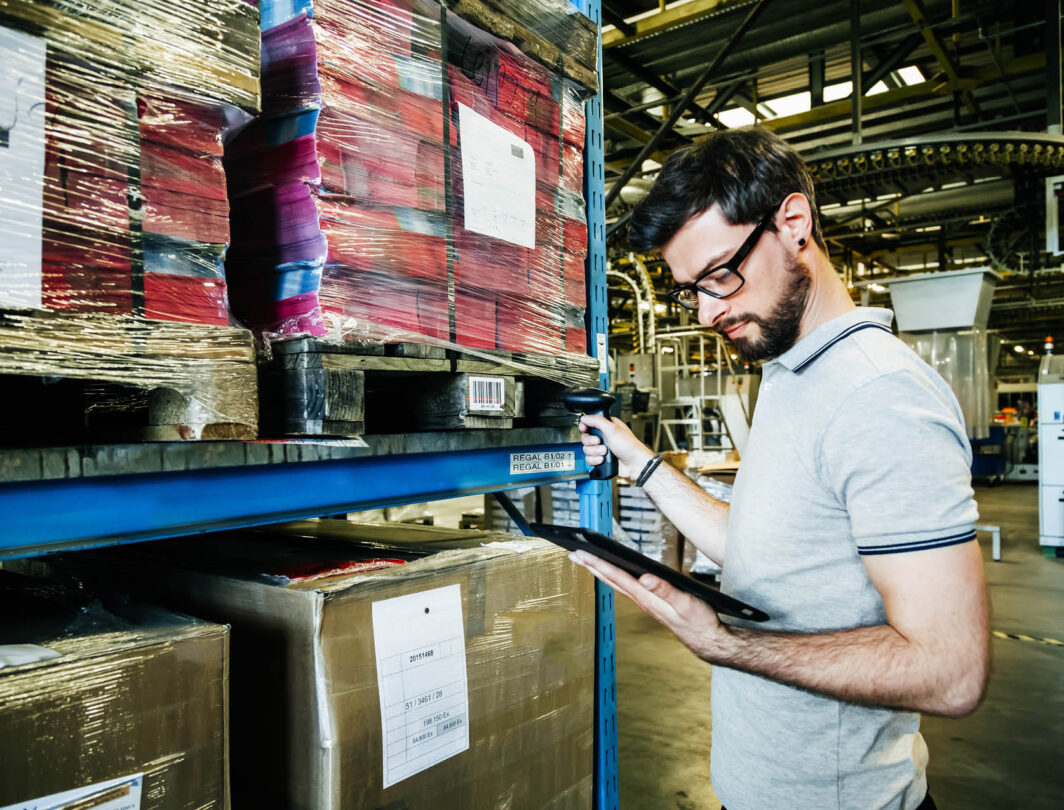Compliance
How traceability can help process manufacturers build stronger supply chains

Industry 4.0 and digital transformation empower process manufacturers to overhaul their operations. Two areas we’re seeing the biggest change are in product innovation and supply chain traceability.
New business ecosystems are emerging that tap into the digital economy and bypass traditional sales channels, as industry players shift their focus from products to services. This change is particularly evident among processes manufacturers, who are placing more emphasis on collaborative innovation to navigate digital transformation.
What’s driving this shift? Globalisation and developments in international trade, like those fuelled by Brexit and the United States-Mexico-Canada Agreement (USMCA). Closer to home, the African Continental Free Trade Area (AfCFTA) aims to promote free trade by breaking down trade barriers and facilitating the free movement of people, money, and goods.
Process manufacturers say international trade disruption makes their supply chains more complex because trading with other countries is now more complicated than it was a few years ago (unless you’re trading within Africa).
There’s a lot more to think about, including:
- New tariffs and trade costs,
- Compliance considerations and potentially new customs procedures,
- Possibly increased lead times, depending on where manufacturers source their components from,
- Developing stronger relationships with suppliers, and
- The knock-on effect of supply chain delays on customer relationships, contract terms, pricing, and demand volume.
If there’s one thing we can learn from process manufacturers in the UK and US, it’s that shifting market developments require us to regularly re-evaluate our supply chains, to understand how potential delays and suppliers’ own plans to navigate disruption could impact our businesses.
But before you default to cost-cutting, have you considered how supply chain solutions can help you through uncertain times?
Importance of traceability in supply chain management
With any global business expansion comes new commercial pressures and expectations, which could put strain on your supply chain. This means it’s crucial that you use your data to manage product quality and improve efficiency through better traceability.
International standards govern quality and traceability of raw materials. As a process manufacturer, you need to know what’s inside your products and where they came from, especially if you want to avoid problems down the line. This can be difficult to monitor.
Not to be confused with ‘tracking’, which focuses on the progression of parts through the manufacturing process using location data, ‘tracing’ has to do with authentication. Through supply chain visibility, tracing lets you identify the origin of a part and better manage accountability, supported by certificates of origin and purchase order numbers.
Tracing is important because counterfeit products can cause massive problems, especially in industries like pharmaceuticals. In the food and beverage industry, accurate tracing helps consumers to make informed decisions, like trusting that the product they’re buying is, in fact, vegan or vegetarian, or that it doesn’t contain nuts or shellfish, which they might be allergic to.
Efficient and accurate tracing depends on all businesses in your supply chain complying with international standards. It’s worth evaluating your supply chain for compliance because traceability provides:
- The security of a healthy brand and loyal customers,
- Real-time visibility into all processes,
- The ability to respond to non-compliance events or demand triggers in real time,
- The flexibility to share product information with suppliers and customers, so they know where their products come from.
Traceability also give you the right information at the right time, so you can:
- Make better-informed decisions,
- Avoid compliance issues through monitoring,
- Support product recalls,
- Better manage materials and know when you need to order more,
- Improve demand planning,
- Arrange better terms with suppliers, and
- Better manage logistics.
Aside from avoiding the repercussions of non-compliance – like reputational and financial damage – traceability can help to improve your operations and makes it easier to recall products, if you need to.
Research conducted by Sage found that 90% of process manufacturers without supply chain traceability reported risks associated with reputation and compliance. Pharmaceutical process manufacturers even reported risk to human life that resulted in legal proceedings.
What technology should process manufacturers focus on?
Traceability is key to compliance, protecting customers, and avoiding reputational damage and hefty fines.
Emerging technology can help process manufacturers to advance their traceability efforts.
-
The Internet of Things
The Internet of Things (IoT) allows process manufacturers to track a product’s movement through the supply chain, using sensors, radio frequency identification (RFID) tags, and quick response (QR) codes.
With the IoT, manufacturers can track everything from a product’s source, to transportation, to storage conditions, and final destination.
-
Big data analytics
By analysing data in real time, process manufacturers can either predict a problem before it happens, or stop it from spreading throughout the supply chain once identified.
With everything tracked, traced, and recorded, you can respond immediately to unexpected events and problems.
-
The cloud
Cloud computing is the engine that powers the IoT and big data analytics. Cloud-based software can automate entire processes associated with infrastructure, operating systems, databases, and applications. With the software handling repetitive, admin-heavy tasks, you’ll have more time to focus on important tasks that keep your business moving forward.
Final word
Ask yourself this question: if something unexpected happened in your supply chain, would you be able to react quickly to prevent damage?
By investing in traceability technology, you can mitigate risk associated with non-compliance. You can also improve your chances of success because you gain a competitive advantage by building agility and flexibility into your supply chain, reduce costs, and keep customers happy and informed.







Ask the author a question or share your advice